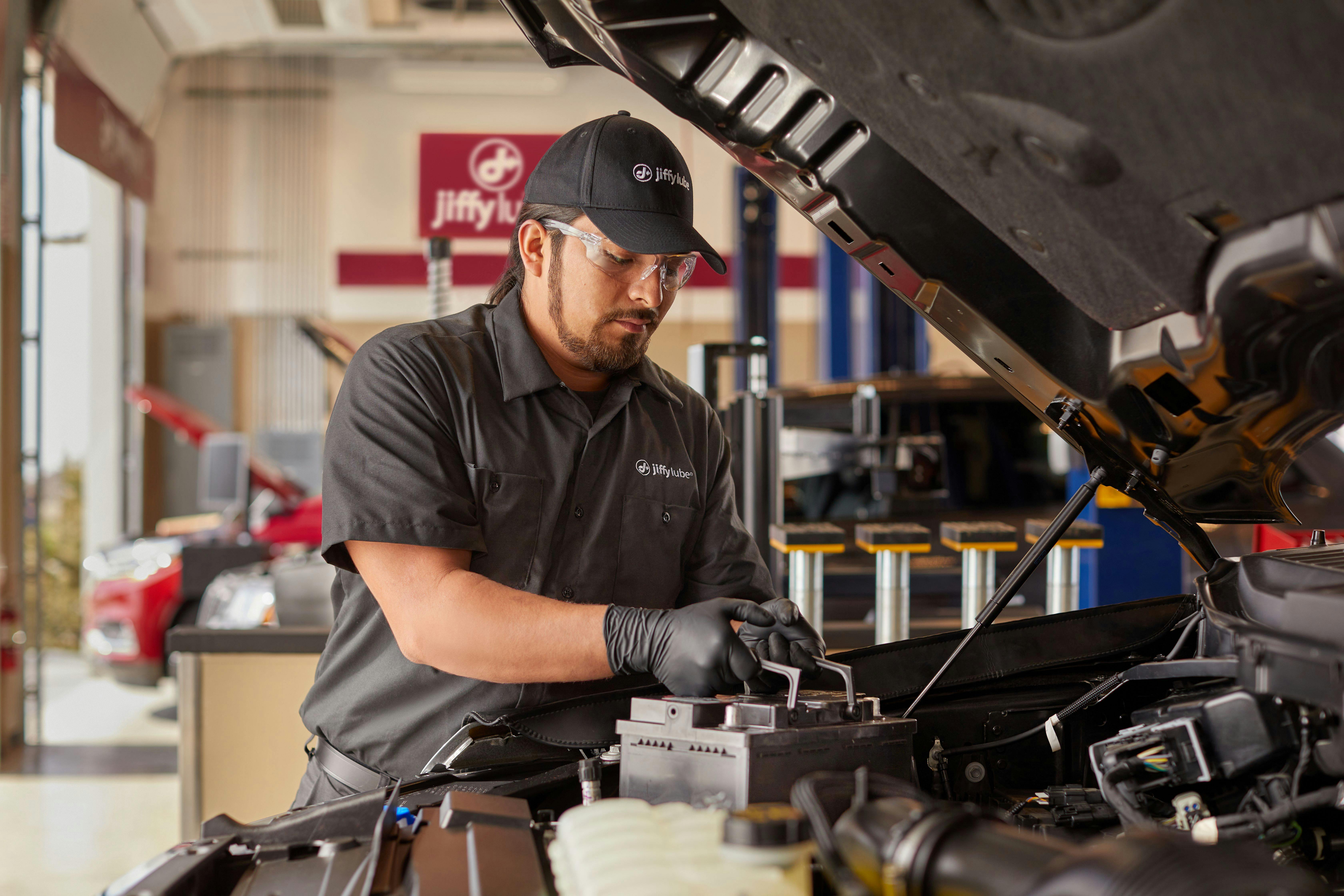It’s 7:45 a.m., you’re getting in your car to head to work, you turn your key, and then…your car won’t start. Ugh, it might be time to get your battery replaced. But what if we told you there’s a proactive approach to replacing your battery rather than changing it at the most inconvenient time? With consistent battery maintenance and knowing the signs of a bad battery, you can replace your battery on your schedule.
Signs and Symptoms of a Bad Car Battery
Be on the lookout for these signs and symptoms to know when you may need to change your car battery.
- Slow engine crank: When you turn your engine over, does it sound more like a lazy cat than a roaring lion? If you hear your engine cranking slowly, you could have a dying battery on your hands.
- Dim headlights: Headlights are crucial for your and other drivers' safety. So, if your headlights seem dimmer than usual, your battery may not be providing enough power for your lights to shine as bright as they should.
- Clicking sound when turning the key or pressing the start button: Well, that’s not good! This issue could indicate a low-battery problem or even a dead battery possibly resulting from a bad alternator. Either way, you’ll need to jump-start your vehicle and visit an automotive professional to see if it’s time for a battery replacement.
- Electrical component issues: Are your windows rolling down slowly at the drive-thru? If your power windows, radio, windshield wipers, or other electrical components aren’t working properly, they might not be getting enough power from your battery.
- Dashboard light illuminated: Most modern vehicles have a battery indicator light on the dashboard that illuminates if the battery isn’t charging properly or is experiencing an issue.
- Swollen battery case: If you’ve been driving during a heat wave or cold snap and are having battery troubles, pop your hood and check your battery. When exposed to extreme temperatures, your battery can swell, causing the battery case to expand. If this occurs, don’t try to drive your car or remove the battery. Tow your vehicle to an automotive professional for a battery replacement.
Replacing a Car Battery: Next Steps
How often should you replace your car battery? Generally, batteries can last three to five years, although this can vary based on the quality of your battery, driving conditions, weather, and other factors.
If your battery is three to five years old and/or you’ve noticed some common bad battery symptoms, it’s time to take your vehicle to an automotive professional. A technician can test your battery to see how much life it has left and visually inspect the battery, including the hold-down and connections, to see if a battery replacement is necessary.

Visit Your Local Jiffy Lube for Battery Services
No one wants to be stuck with a dead battery at the most inconvenient time. Consistent, timely maintenance is the best way to maximize your battery’s longevity and stay proactive about your battery replacement. For battery maintenance and battery replacement services, you can count on your local Jiffy Lube®. Trained technicians can perform terminal cleanings and cable replacements, as well as tighten connections. And when your battery no longer meets your manufacturer’s performance specifications, we’ll replace your battery with one that meets or exceeds manufacturer recommendations.
NOTE: Not all services are offered at all Jiffy Lube service centers. Please call ahead or check jiffylube.com to ensure the service is available at the Jiffy Lube location near you.


